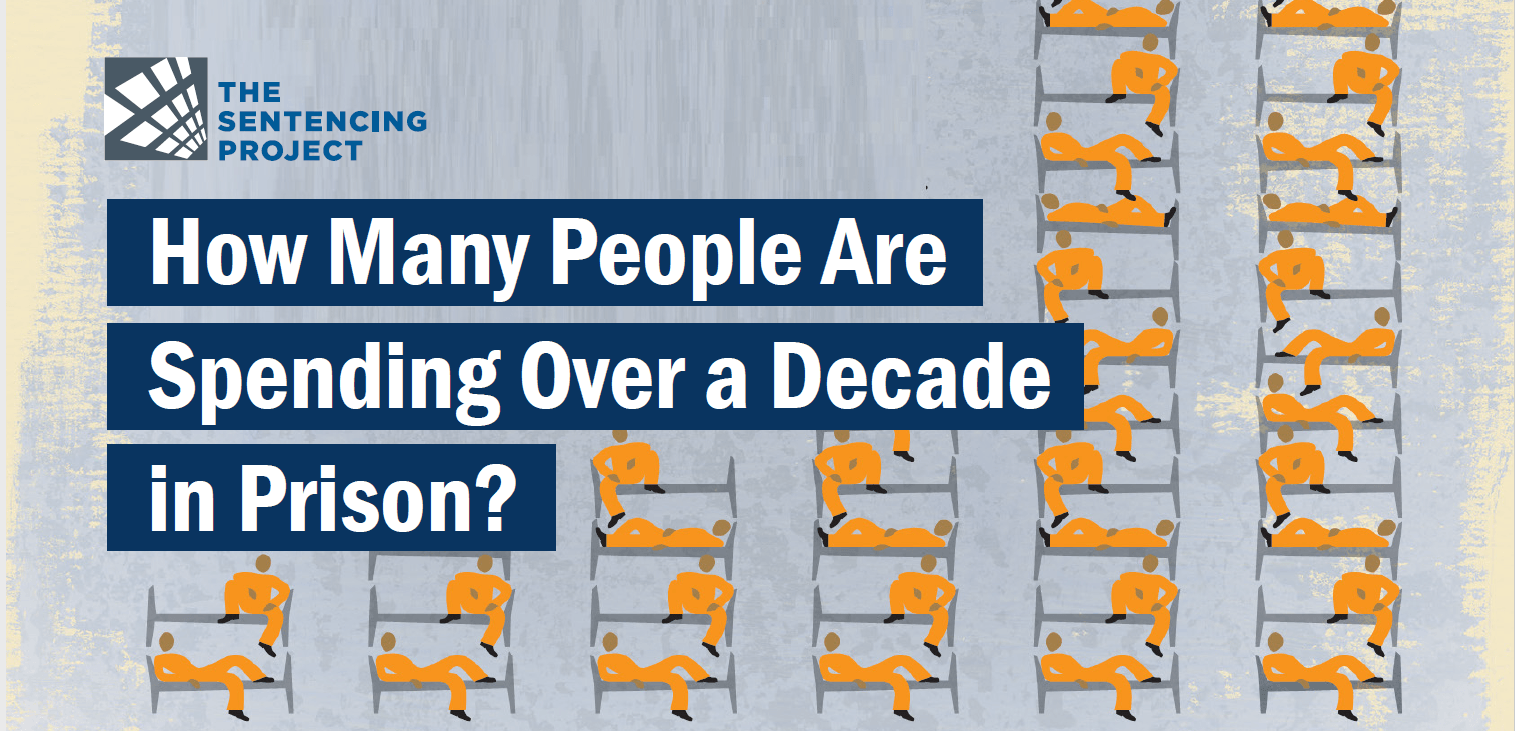Lengthy US Prison Sentences Compounds Mass Incarceration
New report from The Sentencing Project indicates sharp increase in persons serving sentences of 10 years or longer

According to a new study from The Sentencing Project, over 260,000 people in U.S. prisons have already been incarcerated for at least 10 years in 2019, comprising 19% of the prison population. Nearly three times as many people, over 770,000, were serving sentences of 10 years or longer. Based on criminological evidence, criminal careers typically end within approximately 10 years and recidivism rates fall measurably after about a decade of imprisonment. Additionally, as racial disparities are more commonly found in longer sentencing terms than among those serving shorter prison terms, focusing reform efforts on sentences of 10 years or more can accelerate racial justice efforts.
The United States is a stark outlier among western democracies in its heavy and growing reliance on lengthy prison terms. In Germany, for all but 0.01% of prison sentences, the maximum sentence length is 15 years, and life without parole and death sentences have been abolished. In contrast, U.S. policies respond to a far higher homicide rate by prioritizing punishment, rather than reforms focused on prevention that are far more prevalent in other western democracies. One in every seven people in U.S. prisons is serving a life sentence, and nearly half of U.S. states maintain the death penalty, with some continuing to carry out executions.
Noteable findings:
- Nearly one in five people in U.S. prisons—over 260,000 people—had already served at least 10 years in 2019. This is an increase from 133,000 people in 2000—which represented 10% of the prison population in that year.
- Over 770,000 people in U.S. prisons were serving sentences of 10 years or longer in 2019—56% of the total prison population. This is an increase from 587,000 people in 2000—which represented 44% of the prison population in that year.
- In 2019, Black Americans represented 14% of the total U.S. population, 33% of the total prison population, and 46% of the prison population who had already served at least 10 years.
To read the full report from The Sentencing Project, including state-by-state data and policy recommendations, view "How Many People Are Spending Over a Decade in Prison?" (opens in PDF form)










